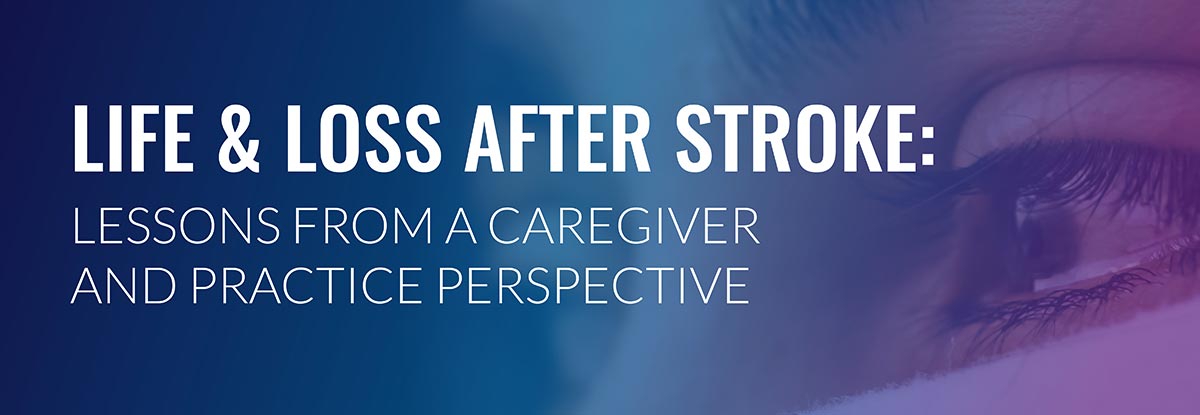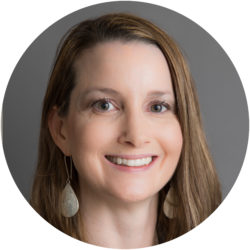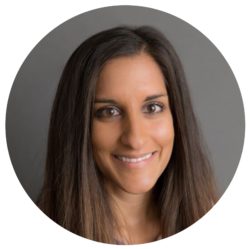 Cummings Graduate Institute for Behavioral Health Studies is pleased to offer an online, continuing education webinar facilitated by
Cummings Graduate Institute for Behavioral Health Studies is pleased to offer an online, continuing education webinar facilitated by
Dr. Natalie Randolph, DBH and Courtney Carver, LMSW
About the Webinar
Each year, approximately 800,000 people in the United States suffer a stroke. Stroke is among the leading causes of long term disability in the United States. After being discharged from the hospital, approximately 80% of stroke survivors return home to the care of family members. These individuals often must reevaluate and remake their self-identity (i.e., from husband or wife or son or daughter) in order to assume the role of “family caregiver.” Unfortunately, this new identity of family caregiver can be fleeting, as many survivors will pass away within the first few months of the stroke. For family caregivers, this can lead to guilt, doubt, and uncertainty about the contributions they can now make since they are no longer in the caregiving role. This distress, in turn, can result in poor adjustment and poor psychosocial outcomes.
The objective of this webinar is to use a “case and frame” approach to illustrate how what we understand from empirical research on this topic expresses itself in the “real world” of mental health practitioners.
Learning Objectives
- List health factors that contribute to the experience of stroke in patients; be able to identify the signs of stroke.
- Identify the grief and loss process from a caregiver perspective, and the differences in this experience for individuals coping with a loss.
- Identify best practice standards in integrated health care settings that highlight opportunities behavioral health professionals may have to assist patients and their families, especially in times of a global pandemic.
To review the learning objectives in full, click here.
Webinar Schedule
-
This webinar will be offered live, Wednesday, February 17, 2021, from 2 p.m. EST/ 11 a.m. PST. to 3 p.m. EST/ Noon PST.
- Duration: 1 hour
Who Should Attend
This webinar is open to the community at no cost. Social workers, nurses, psychologists, licensed therapists, and mental health professionals are encouraged to attend. Anyone with an interest in palliative care is welcome to attend.
Webinar Recording
A recording of the webinar presentation will be shared with all registered attendees. If you’re unable to attend during the scheduled time, you will be able to access the recording by registering for the webinar.
Program Level
Intermediate Level
Accommodations for the Differently Abled
Individuals needing special accommodations, please contact: Alicia Iniguez, ainiguez@cgi.edu, 480-285-1761 ext. 7
Continuing Education
This webinar qualifies for 1 hour of CEs/Continuing Education. It is the participant’s responsibility to check with their individual state boards to verify CE requirements for their state.
To receive the CE credit hour you must attend the live webinar in its entirety and complete a feedback survey. Once you have completed the feedback survey you will be emailed instructions on how to download the certificate of completion from Commonwealth Educational Seminars.
Continuing Education Credit is approved through Commonwealth Educational Seminars for the following professions:
- Psychologists: Commonwealth Educational Seminars is approved by the American Psychological Association to sponsor continuing education for psychologists. Commonwealth Educational Seminars maintains responsibility for these programs and their content.
- Licensed Professional Counselors/Licensed Mental Health Counselors: Commonwealth Educational Seminars (CES) is entitled to award continuing education credit for Licensed Professional Counselors/Licensed Mental Health Counselors. Please visit CES CE CREDIT to see all states that are covered for LPCs/LMHCs. CES maintains responsibility for this program and its content.
- Social Workers: Commonwealth Educational Seminars (CES) is entitled to award continuing education credit for Social Workers. Please visit CES CE CREDIT to see all states that are covered for Social Workers. CES maintains responsibility for this program and its content.
- Social Workers – New York State: Commonwealth Educational Seminars is recognized by the New York State Education Department’s State Board for Social Work as an approved provider of continuing education for licensed social workers. #SW-0444.
- Licensed Marriage & Family Therapists: Commonwealth Educational Seminars (CES) is entitled to award continuing education credit for Licensed Marriage & Family Therapists. Please visit CES CE CREDIT to see all states that are covered for LMFTs. CES maintains responsibility for this program and its content.
- Nurses: As an American Psychological Association (APA) approved provider, CES programs are accepted by the American Nurses Credentialing Center (ANCC). These courses can be utilized by nurses to renew their certification and will be accepted by the ANCC. Every state Board of Nursing accepts ANCC approved programs except California and Iowa, however CES is also an approved Continuing Education provider by the California Board of Registered Nursing (Provider # CEP15567) which is also accepted by the Iowa Board of Nursing.
There is no known commercial support nor conflict of interest for this program.
For further information please contact Commonwealth Educational Seminars, 1 (800) 376-3345, CommonwealthSeminars@gmail.com.
Registration
Registration is required to attend. There is no fee to register or participate in this webinar. The registration deadline is February 16th, 2021. Please register below.
REGISTER
About the Facilitators
 Dr. Natalie Randolph DBH, LCSW
Dr. Natalie Randolph DBH, LCSW
Dr. Natalie Randolph completed her BSW from Northern Arizona University in 2000, while her MSW was obtained from Arizona State University in 2005. In 2016, Ms Randolph completed her Doctorate in Behavioral Health from Arizona State University. She is also a Licensed Clinical Social Worker. Dr. Randolph has served in private, non-profit, and government agencies for the past 20 years; individual, family, group, leadership and consultation work was demonstrated within these roles. Despite, the variety of roles Dr. Randolph has assumed, she developed an area of specialty in the field of substance abuse through her various roles working with: families and adolescents involved in the child welfare system, collaborating discharges with patients on an adult psychiatric unit, providing consultation services with behavioral health staff on a remote reservation combating severe substance abuse issues, and serving as a school social worker in an alternative school setting. She has collaborated with NAU for over a decade to oversee internships for BSW students, in addition to serving as an adjunct professor for the BSW Department. As of August 2017, Dr. Randolph assumed the role of an Assistant Clinical Professor for the BSW Program. The subsequent year, Dr. Randolph aided with the development and implementation of NAU’s MSW Program. Dr. Randolph also serves a therapist at Back2Basics, a private residential substance abuse agency providing psycho-education, individual, group, and family therapy. Dr. Randolph also engages in community service work through her role as a board member at Cummings Graduate Institute.
 Courtney Carver, MSW, LMSW
Courtney Carver, MSW, LMSW
Courtney Carver received her Bachelor’s Degree in Social Work from NAU, and later earned her Master’s Degree in Social Work from ASU. While pursuing her Master’s degree, she worked with DCS teaching foster care classes and assisting children and parents in the family preservation and reunification programs. She has worked as a school counselor and as a neuro social worker for brain injury survivors. Most recently, she practiced medical social work in the palliative field and in the emergency department. In addition, she works in private practice specializing in trauma, life transitions, anxiety, and end of life. Through her diverse experiences, Courtney discovered her passion for teaching, and began teaching part-time in March 2017 at Northern Arizona University. As of August 2017, she became a full-time faculty member with NAU.
Terms of Use
Complaints/Grievances Process
The Institute hopes to provide you with a positive Continuing Education experience. We continually evolve through responses provided through Course Evaluations and other forms of feedback.
If you are dissatisfied with any aspect of your learning experience, please review the following procedures to address any concerns or grievances. Specifically, please inform us of any issues concerning complaints about course content or instructor, dissatisfaction with facilities used for education events, issues pertaining to non-receipt of certificates, or any other occurrences.
We value your input and hope to resolve any grievances in a fair and timely manner.
-
Submit a Grievance Form via email at Complaint/Grievance Form
-
Submitted Grievance Forms will be reviewed by our organizational Compliance Team
-
The Compliance Team will respond in writing in a timely manner to arrange a time to discuss the issue
-
Participants will be provided the opportunity to support allegations however brief or informal, if needed
-
It is CGI’s goal to make a fair decision to achieve a resolution
-
Information from the grievance will be used to improve future courses and education experiences
Contact: Compliance Team
Email: Compliance@cgi.edu, Call: 480-285-1761
Mail: Cummings Graduate Institute for Behavioral Health Studies, 2111 East Baseline Road, Suite E1, Tempe, AZ 85283
Refunds
Your satisfaction with the Program is important to us. However, because of the extensive time, effort, preparation and care that goes into creating and providing the Program we have a no refund policy. Unless otherwise provided by law, you acknowledge that we do not offer refunds for any portion of your payment for any of our Program and no refunds will be provided to you at any time. By using and/or purchasing our Program, you understand and agree that all sales are final and no refunds will be provided.
Terminations/Cancellations
The Institute reserves the right in its sole discretion to refuse or terminate your access to the Program and Content, in full or in part, at any time without notice. In the event of cancellation or termination, you are no longer authorized to access the part of the Program or Content affected by such cancellation or termination. The restrictions imposed on you in these TOU with respect to the Program and its Content will still apply now and in the future, even after termination by you or the Institute.
Nondiscrimination Statement
Cummings Graduate Institute does not and shall not discriminate on the basis of race, color, religion (creed), gender, gender expression, age, national origin (ancestry), disability, marital status, sexual orientation, or military status, in any of its activities or operations.
To view the full Terms and Conditions of Use, visit: https://cgi.thinkific.com/pages/terms






























